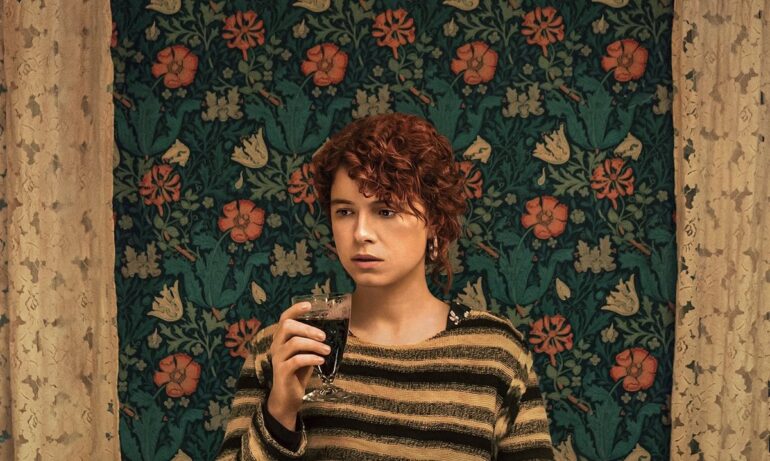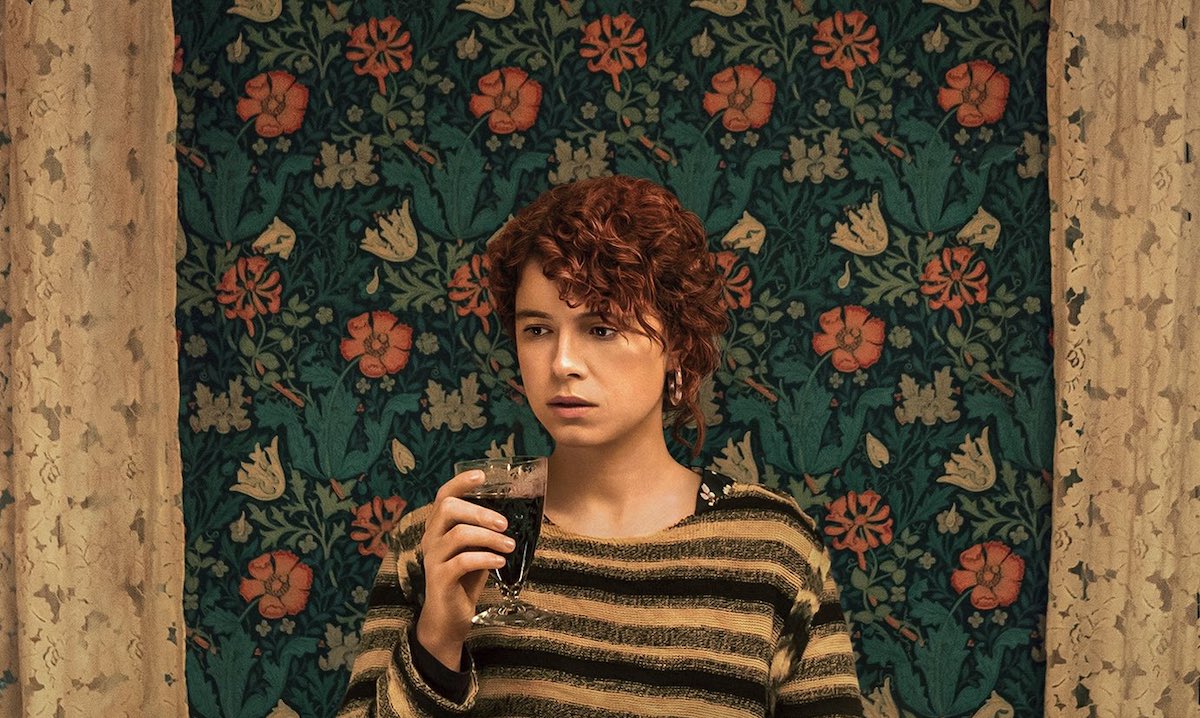Charlie Kaufman’s I’m Thinking of Ending Things is adapted from the novel of the same name by Iain Reid. I read the book a few years ago, and found myself confused for most of it, only gaining some clarity when it was approaching the end. Knowing the ending ironically allowed me to appreciate Kaufman’s vision, and the film version does more in aiding the viewer along in their journey.
The story begins with Jake (Jesse Plemons) and his girlfriend (Jessie Buckley), who are on a road trip to visit Jake’s parents at their farmhouse. The beginning of the film starts out more warm and vibrant. Despite the snowy surroundings, the snow looks magical, and the young woman (as she is referred to in the subtitles and on IMDb), is a bright spot of colour with her yellow scarf. In a parallel sequence, we see a janitor getting ready for his work day, and as the film wears on, we are obviously meant to figure out the connection between the two narratives, and to Kaufman’s credit, he does help us along.
There is a constant refrain in her head that she is thinking of ending things. But what exactly is she thinking of ending? This is the string of mystery that draws the viewer in, but things get more incoherent before you can even come close to comprehending the reason for her thoughts. They get to the farmhouse, and this is where Jake starts to behave strangely. He’s not the only one.
Toni Collette’s performance as Jake’s mother is the epitome of eccentricity, and his father, played by David Thewlis, is actually the one who questions and probes, though he doesn’t do it in a way that gives off an air of clarity. They both seem off their respective rockers, and despite the inviting meal on the table and the seemingly cosy family home setting, a strong sense of the uncanny latches onto the viewer and refuses to let go.
The young woman’s clothes and accessories change randomly while she’s in the house, the dog is constantly shaking itself dry, and time seems to be a shifting thing within this space. It unsettles the viewer, who is trying to seek clarity from the incoherence but can’t make the leap just yet. We do notice that the mood and atmosphere has taken a turn, and the young woman’s clothing is now doused with darker, more sombre colours. The light, magical snow has become quite the snow storm, and the melancholy of the setting permeates everything. During the dinner conversation, there is a discussion on landscapes, and how if painted correctly, would be able to reflect the inner state of someone, without the viewer ever needing to see the person.
Thus, we are made aware that this is someone’s loneliness that we are witnessing, a bleak interior there seems no escape from. Jake and the young woman frequently discuss the alienating effect of society, where outsiders are pushed to the peripheries beyond our sight; there is a refusal to deal with them and acknowledge them, when all they really want is to be looked at with just a little bit of kindness and love. Jake mentions that it is easy to offer platitudes, of things getting better, of things improving, but the film shows the difficulty individuals face in moving forward when there is no love to attach themselves to. How can you see beyond your present when you are drowning in an overwhelming sense of loneliness?
The resolution, as everything is with Kaufman, is not an easy one to unpack. It is steeped in the symbolism of various art forms – that of dance, musical theatre and even animation. Everything is so hauntingly gorgeous. There are moments when I gasped at the beauty of it all, all while choking on the poignancy of what was unfolding.
However, beneath all the layers of obtuse storytelling lies a fairly discernible answer. Why would a young woman think about ending things with her boyfriend? The answer: because there is no love left, that is the reason why things end. It is a world devoid of love that Kaufman paints for us, the suffering and struggles of individuals we choose to ignore because it makes our own lives easier.
I’m Thinking of Ending Things is not an easy film, cognitively and emotionally. But as with every Kaufman film, I end the experience with much to think about, and walk my next steps forward more aware of my peripheries, as I leave behind a trailing path of snow.
Some of the coverage you find on Cultured Vultures contains affiliate links, which provide us with small commissions based on purchases made from visiting our site. We cover gaming news, movie reviews, wrestling and much more.




